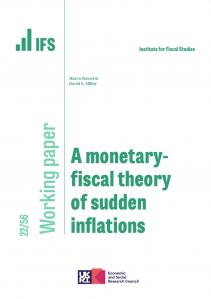<p>Among the majority of high-income OECD countries, the degree of fiscal decentralisation has converged over the last 30 years towards an intermediate level. The theoretical arguments for and against fiscal decentralisation point to explanations for this tendency, because both extreme decentralisation and extreme centralisation are associated with disadvantages for economic growth. Hence, the observed trend of convergence would be growth-promoting. The paper analyses the long-run empirical relationship between per capita economic growth, capital formation and total factor productivity growth, and fiscal decentralisation for the high-income OECD countries. The evidence supports the view that the relationship is positive when fiscal decentralisation is increasing from low levels, but then reaches a peak and turns negative. A policy implication is that policy-makers in several countries with relatively low degrees of fiscal decentralisation could possibly mobilise growth reserves by increasing it. </p>







